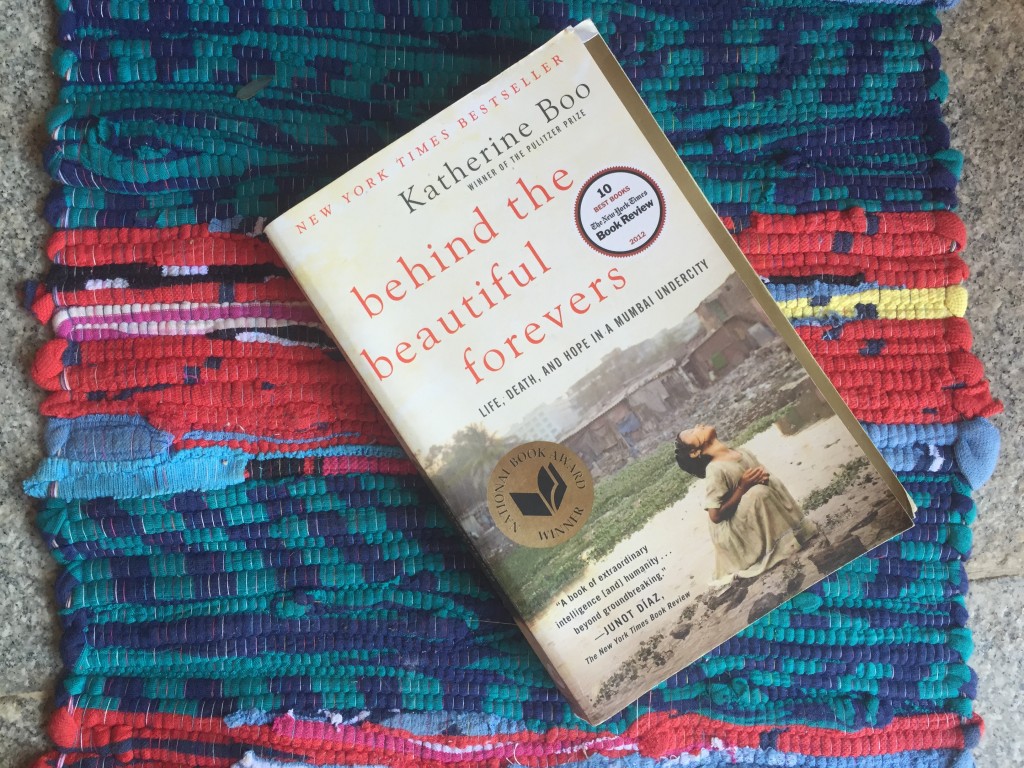I think this says it all: I thought this confronting tale of life in a Mumbai slum in the early 2000s was fiction (such was the “unrealness” of it) until I got to the end and read the epilogue where the The New Yorker poverty correspondent Katherine Boo explains that every single detail is true. And that she spent four years living in the slums to get the full, graphic, stranger-than-fiction story.

Background: Two friends had mentioned Boo’s book. Then I saw it in the library at the India clinic, shoved down the back. I have a three strikes rule. So I had to give it a crack. The upshot being that it’s now One of My Favourite Books Ever.
The gist: Boo follows a collection of slum characters as they navigate their daily human-ness in slummy filth, throwing up inevitable observations on capitalism, consumerism, corruption and character. The reader is forced to confront their own grubby lives. And their narrow take on poverty.
The best bits: The tale in itself is gripping (made more so by the fact it’s true), but the prose is what got me in. Try this for exhilaratingly big-brained size:
“In the West, and among some in the Indian elite, this word, corruption, had purely negative connotations; it was seen as blocking India’s modern, global ambitions. But for the poor of a country where corruption thieved a great deal of opportunity, corruption was one of the genuine opportunities that remained.”
And Boo’s author’s note at the end, which, frankly, left me fired up to risk failure:
“I wanted to read the book that would begin to answer some of my questions, because I felt I couldn’t write it… I also doubted my ability to handle monsoon and slum conditions after years of lousy health. I made the decision to try in the course of an absurdly long night at home alone in Washington, D.C. Tripping over an unabridged dictionary, I found myself on the floor with a punctured lung and three broken ribs in a spreading pool of Diet Dr Pepper, unable to slither to a phone. In the hours that passed, I arrived at a certain clarity. Having proved myself ill-suited to safe cohabitation with an unabridged dictionary, I had little to lose by pursuing my interests in another quarter, a place beyond my so-called expertise, where the risk of failure would be great but the interactions somewhat more meaningful.”
I won’t say much more. Other than to say it’s a big read for anyone wanting to have a better, kinder opinion of where we’re all heading. PS I didn’t say it was pretty.
Read it? Liked it? Want to share another important big read with us?

